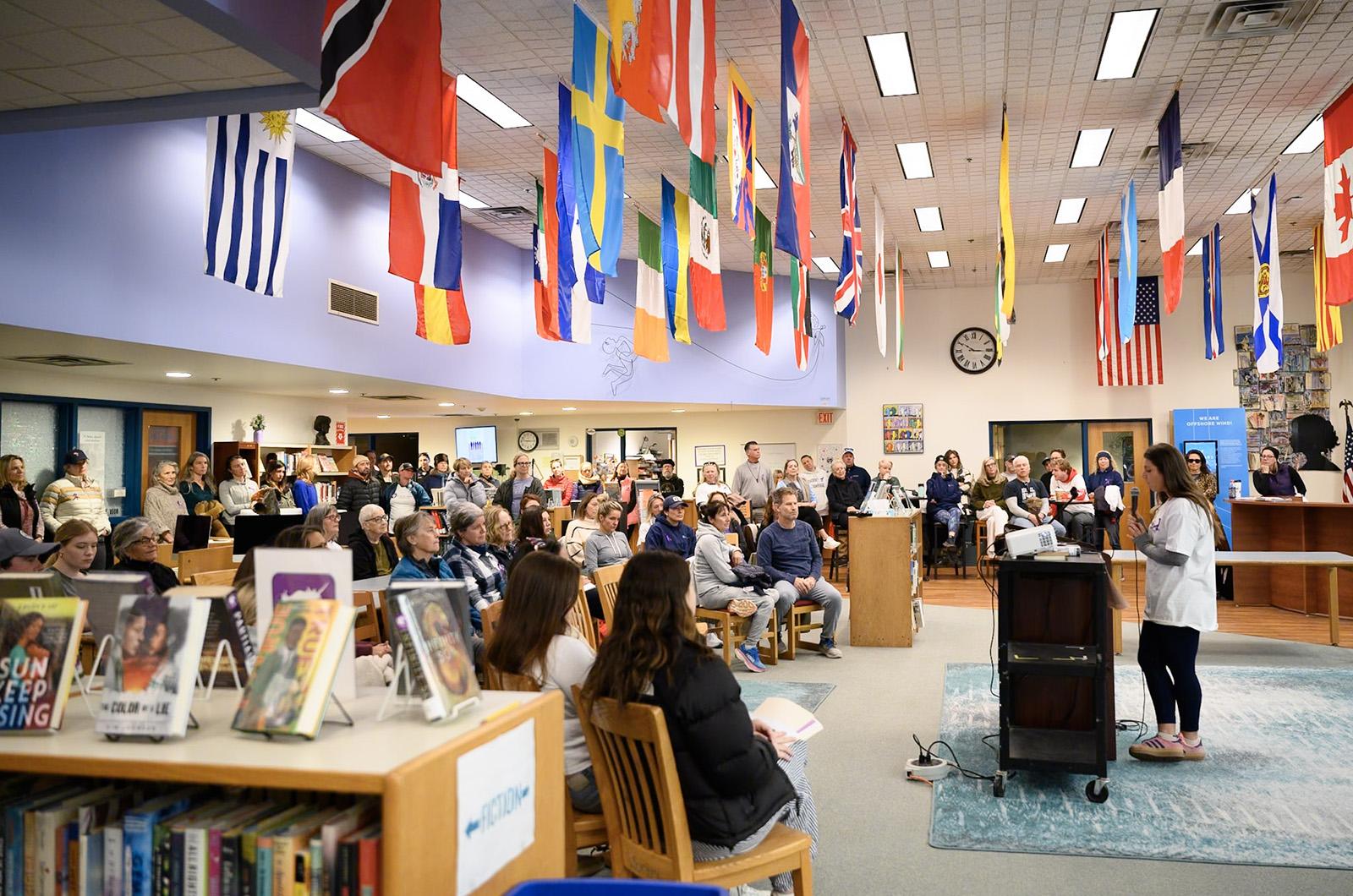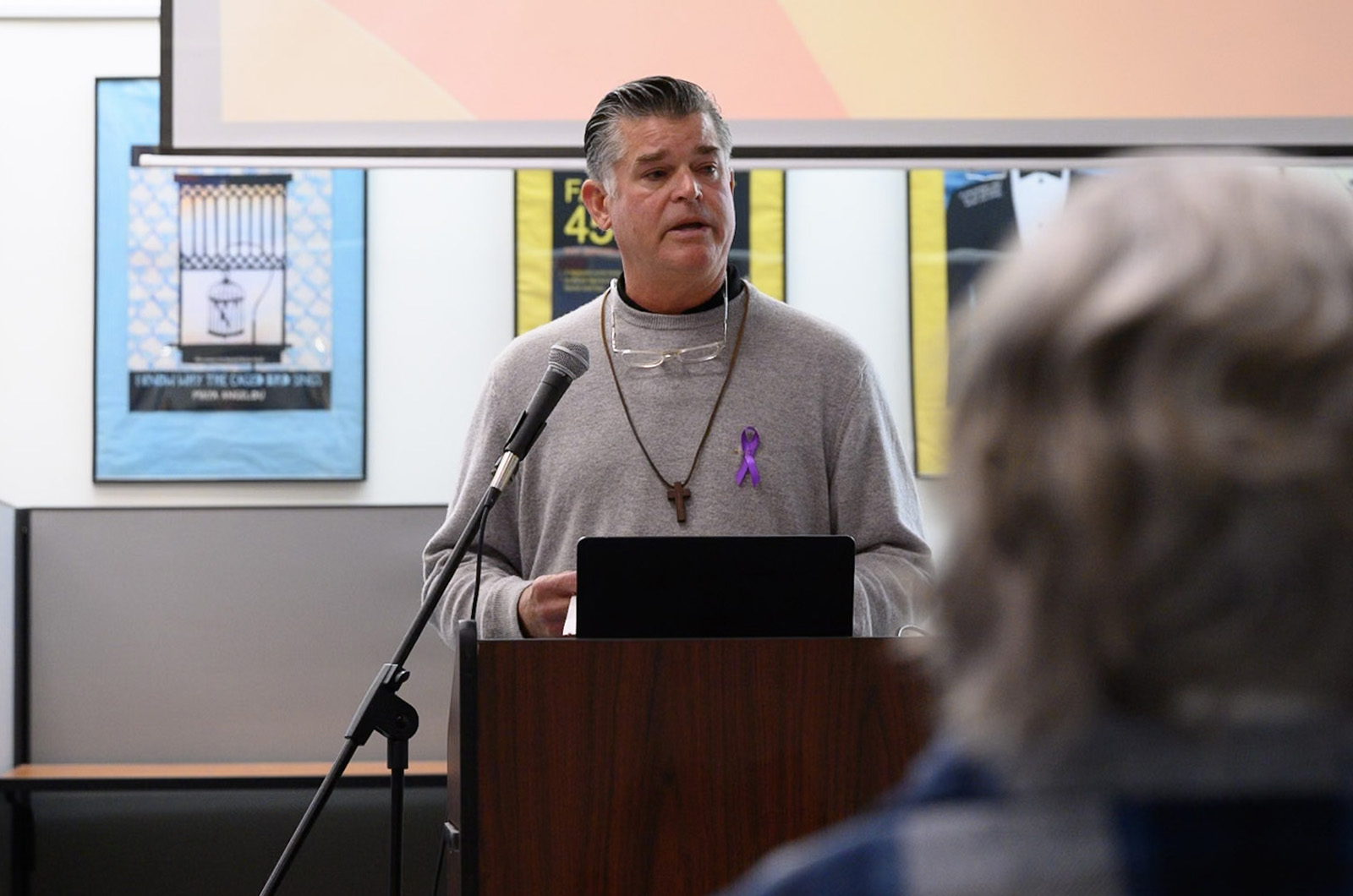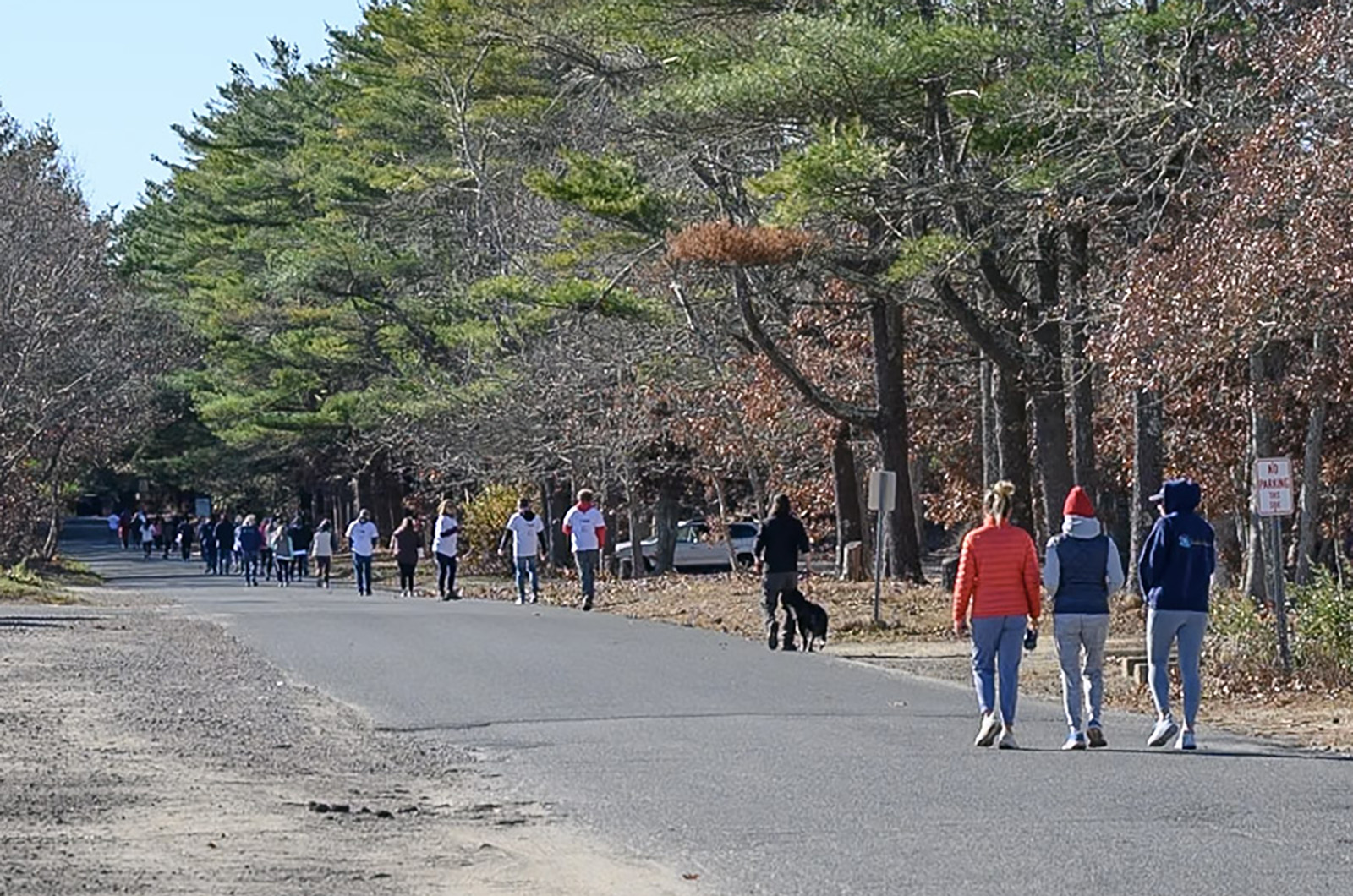Nearly a hundred people gathered at the Martha’s Vineyard Regional High School on Saturday morning for a walk to raise awareness about the effects of addiction on the family and friends of those struggling with substance abuse.
Annabelle Metell, a senior at the high school, organized the event for her capstone project, an independent study elective for juniors and seniors. Students who do capstone projects choose to research issues the community faces and look for ways to help.
Ms. Metell spent the past couple of months researching the prevalence of addiction on the Island, an issue close to her heart since she has a parent in recovery from alcoholism, and other extended relatives who struggle with addiction.
“We’re all united by something very powerful — the shared understanding that addiction affects not just the person struggling with it, but everyone around them...” Ms. Metell told participants in opening remarks. “Today is a reminder that your journey matters, that your pain and your courage deserve to be recognized.”

Participants wore white T-shirts adorned with the words Break The Silence, the slogan Ms. Metell chose for the walk to encourage the loved ones of those struggling with addiction to share their feelings and seek support. Many also pinned purple ribbons to their clothes, the official color of the recovery movement.
Before the walk began, participants gathered in the library to hear speeches from Vivian Baxter and Isabella Levy, who will be doing a similar capstone project about the stigma of addiction, and will host a talk called Stepping Up on Dec. 12.
“The goal is not only to spread awareness about addiction, but also foster a supportive community for those affected by it,” Ms. Levy said.
Jack D’Arcy, a family friend of Ms. Metell’s, told participants about his personal experiences with alcohol addiction. He said that when he felt isolated, alcohol filled the void. But when his addiction escalated, it exacerbated those feelings.
“Drinking and drugs really are just symptoms of deeper things that we all need to deal with...” Mr. D’Arcy said. “I almost burned down everything I had in life, and I’m just really grateful that I was able to save it.”
Before he was in recovery, Mr. D’Arcy said he wasn’t able to be present in the lives of his loved ones. Once he started going to Alcoholics Anonymous meetings, he said he realized his loved ones were feeling lonely too.
“All of the people that are in your life are left asking themselves again and again: ‘Where is Jack?... or Where’s my Dad? Where’s my friend, or my boss, or my mentor?’” Mr. D’Arcy said. “...Being left emotionally alone and isolated is the bottom line that both of us feel.”
He noted that for many people, substance abuse starts in high school. Mr. D’Arcy commended the students for educating their peers and speaking up about the impact that addiction has on loved ones.
“I think the big word here is willingness,” Mr. D’Arcy said. “If you’re feeling feelings of isolation and things like that, then ask for help because there are resources out there.”
Other community members also shared their experiences with addiction, some of whom are part of the Red House Peer Recovery Center.
Ed Tuzik, who has been a member of Narcotics Anonymous for over a decade, told the crowd how he started using when he was seven years-old and said that even though it has taken him a while to reach recovery, he has been able to correct former behaviors that caused him turmoil.
He said the stigma surrounding addiction is what makes many so resistant to seeking support. Being vulnerable and sharing personal experiences, no matter how difficult, shows others that there’s still hope, he said.
“It’s really emotional for all of us to get up here and share. We need to give back. We need to tell other people that it’s okay, that we can talk about this,” Mr. Tuzik said.
After the speeches, many cried and embraced, sharing stories about their ongoing battles with addiction or witnessing loved ones suffer from substance abuse.
During the walk, a resounding message echoed.
“Together we are stronger than addiction,” Ms. Metell said.









Comments (1)
Comments
Comment policy »